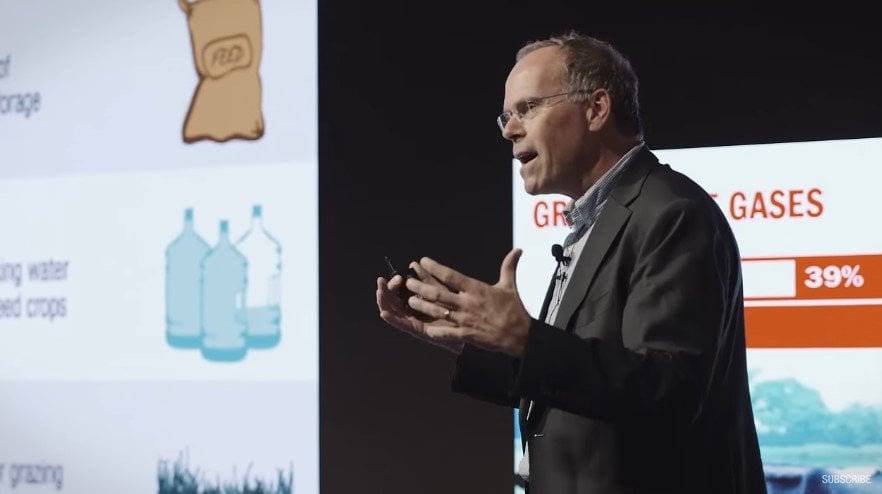Mark Post is worried about the impact of meat, but doesn’t want to stop eating it. The Maastrich University professor explains why the meat industry is unsustainable and its future will be bioengineered in the lab.
Q2 hedge fund letters, conference, scoops etc
Mark Post: Bioengineering Meat Is The Key To Survival
Transcript
There are many problems with the current wheat production that we will soon encounter. So if you think about a quarter pounder hamburger which is a quarter pound of beef then seven pounds of grain go into them 50 gallons of water fresh water already alluded to go into that 70 square feet of land. And. About a thousand you of energy that's a lot of resources that go into a simple simple hamburger. That's all because we feed cows and the cows then feed us. But the intermediaries the cow is a very very inefficient animal in terms of converting the vegetables that they eat in vegetable proteins into animal edible to such an extent that we currently are already using 70 percent of all our arable land to produce meat and we could use that land for other purposes. In addition it's increasingly known that our livestock industry is a big emitter of greenhouse gases. Allegedly the same as our transport industry. So those cows and I since I know these numbers I look at cows in the pasture and I think about these clouds of methane that come out of it. So there are pressing reasons to start thinking about an alternative way of using meat and that's not only because we go from seven to nine billion people or ten but also because meat consumption is pretty much related to the gross domestic product of a country. And as the gross domestic product of some countries in particular India and China is going up meat consumption will increase. So this is the human traffic level it's where we are in the food chain if it's one it's a plant if it's two it's an animal that eats plants. If it's free it's an animal that eats animals that eats plants and we are at two point free meaning that 30 percent of all our proteins come from animals that eat plants. So we're at two point three and then India and China went up for the last 30 years and are gradually creeping up to that two point three indicating. And here is the correlation between the human trophic level and the gross domestic product and you see the perfect correlation. Whenever countries become richer middle class incomes rise in numbers people will start to eat meat.
Is a story in the way evolution is one that is intimately tied to meat. Once we started cooking meat then we could get lots of energy. But energy enabled us to have big brains and become physically anatomically human hunters and gatherers all over the world are very Sanad if for a few days time the hunters come back empty handed. The camp becomes quiet the dancing stops and then somebody catches some meat. They bring the prey into the camp or nowadays into somebody's back garden with a barbecue everybody gets excited to come and share the meat. It is ritually caught and passed out to people. We are a species designed to love meat.
Feeding the world is a complex problem. I think people don't yet realise what an impact. Meat consumption has on the planet. 18 percent of our greenhouse gas emissions come from meat production. We're also using something like 1700 gallons of water to produce just one pound of meat. Meat takes up about 70 percent of our Arab lands. There's no question that if we were able to shift more of our land into intensive fruit and vegetable production we'd be able to feed a lot more people a lot healthier diet. With the global population growing from 7 billion to 9 billion people by 2050 the demand for meat will double. We can't just continue doing what we've been doing unless we make some changes in how we produce meat on this planet.
We're in for a terrible reckoning meat consumption was part of the human species. It's been fantastic.






